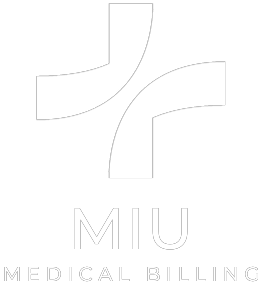Introduction:
Medical billing and coding are essential in healthcare since they help guide the provider’s revenue. However, one disadvantage is that denied claims submitted to payers are not paid for, but those claims are rejected for various reasons. The management of claim denials must be done effectively to gain efficiency, minimize lost revenue, and improve cash inflows. In this guide, we’ll get deep into healthcare denial management in medical billing, covering the denial management in the medical billing process and answering the question: Where does denial management occur in medical billing?
Understanding Denial Management in Medical Billing
Therefore, denial management in medical billing refers to the system that handles all claims rejected or denied by the healthcare provider and the billing team. Rejections can result from mistakes like the absence of data, incorrect codes, or the patients’ inaptitude. Denials in healthcare can be managed, and healthcare denial management focuses on discovering why that particular denial exists and then proceeding to solve that problem.
The denial management process starts with analysis, then correcting the problem, and looking for a way to avoid similar occurrences. In this manner, the process is optimized to provide a steady revenue cycle for the healthcare providers and eliminate the costs incurred while resubmitting claims.
Why is Effective Claims Denial Management Important?

Claim denial must be adequately managed because, if not accorded the proper attention, it may lead to denials, resulting in the rise of debts and higher operational costs. This means revenue loss and additional workload on the billing team, which has to resubmit the claims in cases of high denial rates. If denial management is not addressed, providers face more extended payment cycles, decreased patient satisfaction, and strained payer relationships.
The right approach to denial management allows for increasing reimbursement rates, decreasing organizational costs, and improving the financial situation of healthcare providers.
Effective Claims Denial Management in the Medical Billing Process:
Overview of the Denial Management Workflow:
The denial management process in medical billing determines what has caused the denial, reviews the denial patterns, and makes the necessary corrections before submitting the claims. This process helps to ensure a cycle of revenue and better rates of reimbursement as well.
Critical Steps in the Process
The fundamental approach in managing denials is given below:
- Identifying the Cause of Denial: The initial process includes reviewing every single denied claim to determine why such a decision has been made. This assists in correcting the problem and resubmitting it for grading.
- Analyzing Patterns in Denials: By studying, providers can discover that many denials may stem from coding or documentation problems.
- Correcting Errors: This activity entails checking the database for correct claims codes and adding documents that may not have been affixed to them before the claim submission.
- Resubmitting Claims: The claim is then forwarded for the necessary correction and resubmitted to the payer for further consideration.
Effective Claims Denial Management Includes the Following
An effective claims denial management strategy should include the following fundamental approaches:
Root Cause Analysis: The provider can analyze Categorized denials to reveal systemic problems that presage denials.
- Staff Training and Awareness: Such measures as targeted staff training regarding coding standards, billers’ payer special requirements, and billing procedures can help avoid such mistakes.
- Regular Audits and Reviews: Regularity enables healthcare providers to look for errors in documented work, coding, or claim submissions and make necessary changes.
- Communication with Insurance Providers: Clear payer communication establishes caregivers’ understanding of individual reasons for denial and timely rectification.
A well-structured denial management strategy increases the claim acceptance rates, optimizes cash flow, and reduces the workload likely to arise from denial management.
Healthcare Denial Management

It is imperative to mention denial management at a new high in the healthcare industry due to merging aesthetic billing processes, payer demands, and stringent compliance guidelines.
Specific Challenges and Considerations
The management of denial in healthcare has always proven delicate since there is usually a lot of misunderstanding on patient eligibility, regular codification changes, and documented codes. Variability in the payers also augments these challenges because every payer approves the claims in distinct ways.
Differences Between Healthcare Denial Management and General Denial Management Practices
Comparing Healthcare Denial Management with General Denial Management Techniques
Healthcare denial management is much more complex than other industries because of the rules and regulations, HIPAA rules, and the codes that must be followed to manage denial. In addition, clinical documentation accuracy, patient eligibility verification, and coding updates are important themes healthcare providers need to acknowledge to decrease claim denial.
Case Studies or Examples of Successful Healthcare Denial Management
An extensive healthcare network adopted a process of real-time eligibility verification, and its percentage of denied claims decreased dramatically. Because of performing RCA at the network level about denied claims, the network enhanced the first run of effective claim acceptance and reduced the duration of managing denials.
How to Improve Your Denial Management Process
Denial management is not an event but a process comprising best practices, automation, and consistent effort across a healthcare organization.
Best Practices for Healthcare Providers
- Proactive Eligibility Verification: Pre-authorization of services may help to avoid situations when a patient’s insurance coverage is the actual reason for denial of the services he/she requested.
- Standardized Coding and Billing Procedures: Occasionally updating coding guidelines and payer requirements to improve billing is effective.
- Timely Appeals and Follow-Up: The common understanding of the process of follow-up of denied claims is as follows: Regular follow-up of denied claims guarantees their rapid processing, which positively affects cash flow.
Tools and Technologies for Automation in Denial Management
One has to bear in mind that even with complex billing processes, different computations can be mechanized, a factor that reduces the risks of human errors when using advanced billing software with automation capabilities. They can also help with tasks such as eligibility checking, coding verification in real-time, and tracking in real-time claims. Using predictive analytics, providers can also determine some possible denials before the claims filing.
Tips for Continuous Improvement and Monitoring
Providers must monitor denial rates daily, and in those cases where reporting is done weekly, the documentation must be continuous to identify recurring patterns. This means that, through information analysis, the providers can monitor such aspects as the degree of achievement of plan objectives, organizational shortcomings, and potential for denial management improvement.
F&Q
Q: What is Denial Management in RCM?
A: Denial management in Revenue Cycle Management (RCM), therefore, refers to the management process of dealing with denied claims to the most significant advantage. The critical aspects of RCM denial management are finding out the reasons for denial, rectifying problems, and taking preventive actions to improve the general performance of revenues.
Q: What is Denial Management in Medical Coding?
A: Managing denials in medical coding requires checking, verifying, and coding compliance with diagnosis and procedure codes acceptable to the payer. Hence, careful coding enhances the acceptance of claims and reduces the denial of payment by insurance companies.
Conclusion
In conclusion, denial management in medical billing helps reduce claim rejections and increase revenue. A strong denial management plan enables healthcare providers to address claim concerns adequately, enhance cash inflows, and preserve relationships with payers. Fortunately, staff training and automation bring proactive revenue management that, in the long run, will ensure that providers get better and more sustainable sources of income.




